ASUS ExpertBook B9450CEA Specifications
Below is a list of the specifications for the ASUS ExpertBook B9450CEA.
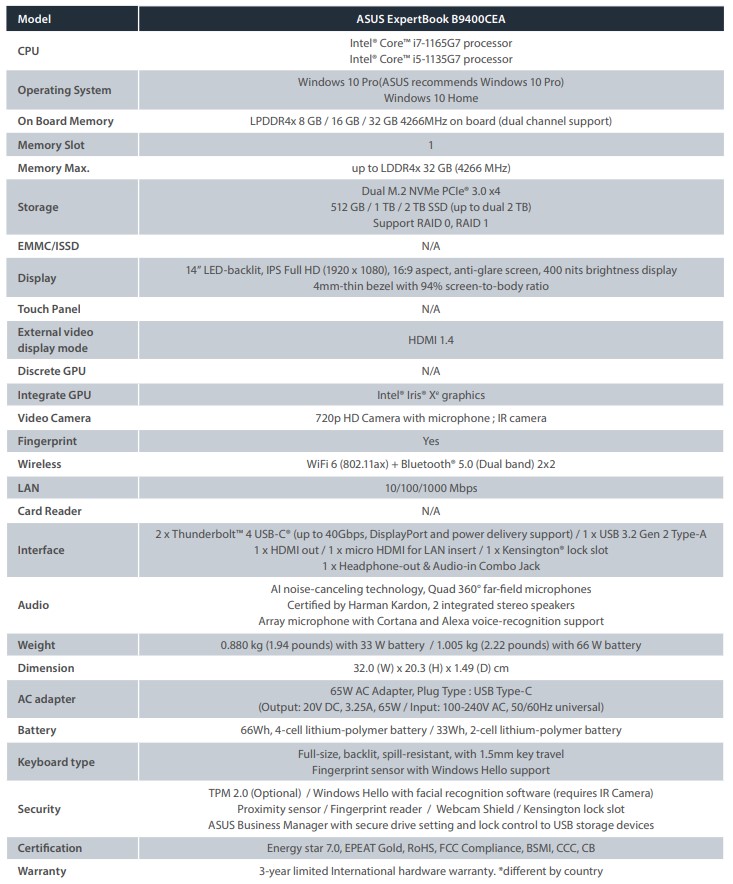
Also of note for the ExpertBook, it is equipped with dual M.2 ports for storage expansion. These ports can be configured as RAID 0, RAID 1, or as single SSDs. Removing the back requires a Star Screwdriver bit. We would have preferred standard Phillips head screws for this.
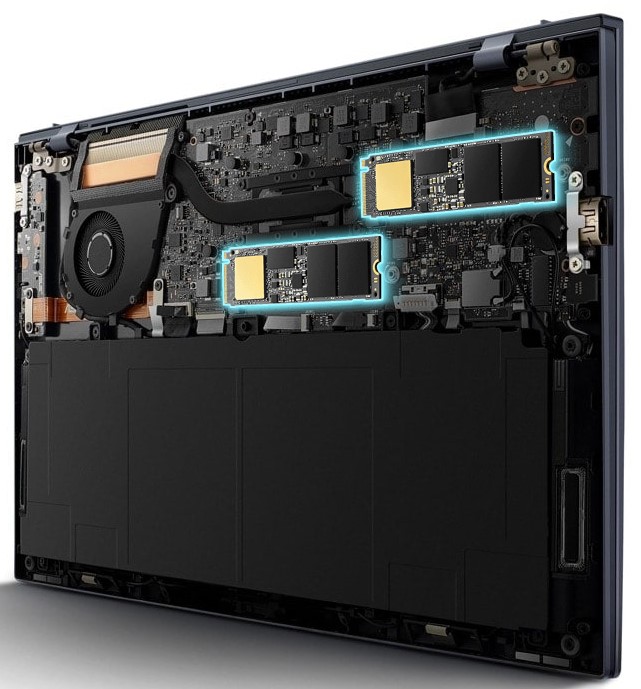
Next, let us look at our test setup.
Test Setup
For testing our ASUS ExpertBook B9450CEA equipped as follows:
- CPU: Intel Core i7-1185G7 (3.0 GHz) 4 core / 8 threads
- Memory: 16GB 4266 MHz LPDDR4x onboard (dual-channel support)
- Graphics: Intel Iris Xe Graphics
- Storage: Dual M .2 NVMe 512GB SSDs for a total of 1TB
- OS: Windows 10 Pro
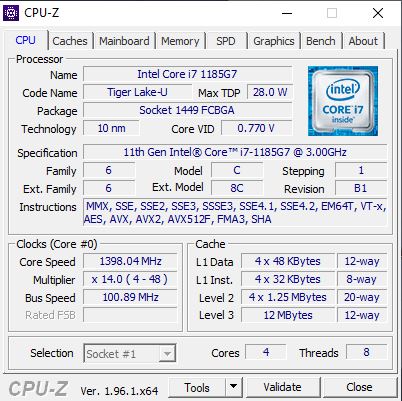
The Intel Core i7-1185G7 runs with a base speed of 3.0GHz and can Turbo up to 4.8GHz.
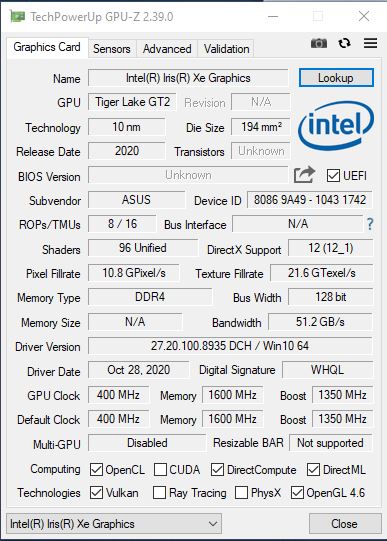
GPU-Z shows the primary stats of our Intel Iris Xe Graphics. The Intel Iris Xe Graphics GPU clocks in at 400 MHz. Pixel Fillrates run at 10.8 GPixels/s, and Texture Fillrate comes in at 21.6 GTexel/s.
Let us move on and start our testing.

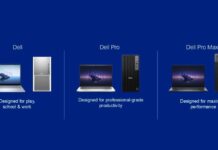
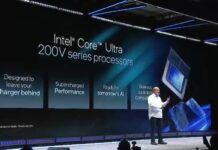
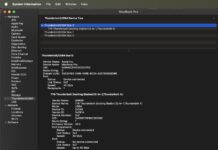
This review could use some editing. I probably missed some issues since I skipped to the last page, but here’s a few suggestions/corrections:
1. (p1) It would be very helpful to include the screen size (14″) on the first page.
2. (p1) Battery sizes should be stated in Wh, not simply W(atts).
3. (p1) The illustration labels a headphone port as USB-C, and you seem to simply parrot this, rather than calling out the error: “We also find a USB Type-C port and a USB 3.2 port.”
4. (p4) The battery life test/comments need to mention the tested battery size (I’m guessing 64Wh), and the author should address why this system is able to pull off battery life in two tests that is over 2x-5x better than the nearest listed competition. I’m guessing it’s largely because it’s comparing a 64Wh system to a 38Wh system from two years ago (as well as the workstations that are optimized for performance over battery life), but those disparities should be explained in the review.
RJ45 micro HDMI adapter for Ethernet is sold by neither ASUS nor any other company.